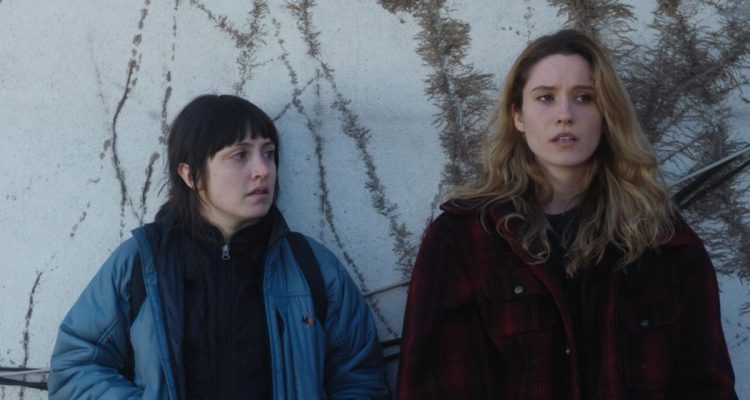Comprising small, gentle scenes played out largely in apartments and restaurants, “Fourteen” wonders if it’s possible for friendships to deepen even as they fall apart. Doing most of the falling apart is Jo (Norma Kuhling), a depressed 20-something who sleeps in past work and sleeps around with lots of guys, much to her friend, Mara’s (Tallie Medel), judgment. The two have been close since middle school, with a scrapbook of memories immediately recognizable to anyone lucky enough to have a life-long friend. But something’s amiss. As Jo starts acting strange, Dan Sallit’s case study on platonic love takes a unique yet entirely welcome turn.
From the start, “Fourteen” unfolds with a calm, low-key sincerity common in low-budget indies, while staying true to a distinct style. Sallitt—a long-time film critic prior to becoming a director—tells his story more through time than images, skipping main events in Jo and Mara’s relationship to emphasize life as a series of intimate moments (like Yasujiro Ozu cutting past weddings, only here we’re skipping weeks, even months at a time). At the onset, these Brooklynites do everything together. No trip to the bar, coffee shop, or bathroom is complete without the other in tow. But when Jo’s mental state deteriorates, their friendship follows suit. Jo can no longer keep a steady job. Her romances end in threats of self-harm, followed by buckets of ice cream and helpings of Mara’s reassuring words of wisdom. None of which get through to her.
When Jo pulls a knife on her boyfriend, things really get out of hand. “If he thinks that’s pulling a knife on someone, he needs to be educated on the matter,” she explains unconvincingly. No matter how hard she tries to keep out of trouble, Jo has a gift for falling into bad circumstances, a self-destructive streak that might have been trite in the hands of a less talented director, or less moving performers. Although Kuhling has the showier role as Jo, strutting around Brooklyn like she owns the place, it’s Medel’s Mara who astonishes, showing palpable restraint even when Jo pushes her over the edge.
The same can be said for Sallit, who subtly uses framing as a visual metaphor for a devastating future. By avoiding close-ups, his distant shots of bodies moving in and out of the frame serve as a reminder for how easily people come and go. Sometimes, as with a three-minute shot of a train arriving at a station, he invites the viewer to luxuriate in each frame, only to cut to something abrasive moments later. This disorienting technique works best when Jo and Mara drift apart.
Mara’s inability to grasp the reason for Jo’s behavior—a mental illness that started at fourteen, when they met—makes for heartbreaking drama. The two, who couldn’t go a day without seeing each other for decades, now see each other once a week, then a month, then a year. Yet when they do meet up, their affable spark is writ large, full of compulsive energy and smiles conveying a lifetime of shared experience. One can’t help but root for them to succeed, even as Mara distances herself while trying to raise her newborn. To see two friends slowly pull apart for an hour-and-a-half is a powerful and despairing thing; a paradox made manifest through Sallit’s love for his characters and, by contrast, his willingness to explore Jo’s not-so-lovely mental state.
“Fourteen” generates important insights on time, mental illness, and relationships, proving, through a tableau of exquisitely staged moments, that friendships deepen over time no matter the circumstance. Jo and Mara are destined to be besties for life, and possibly even after. [B]
“Fourteen” is currently available to rent on Virtual Cinema.

